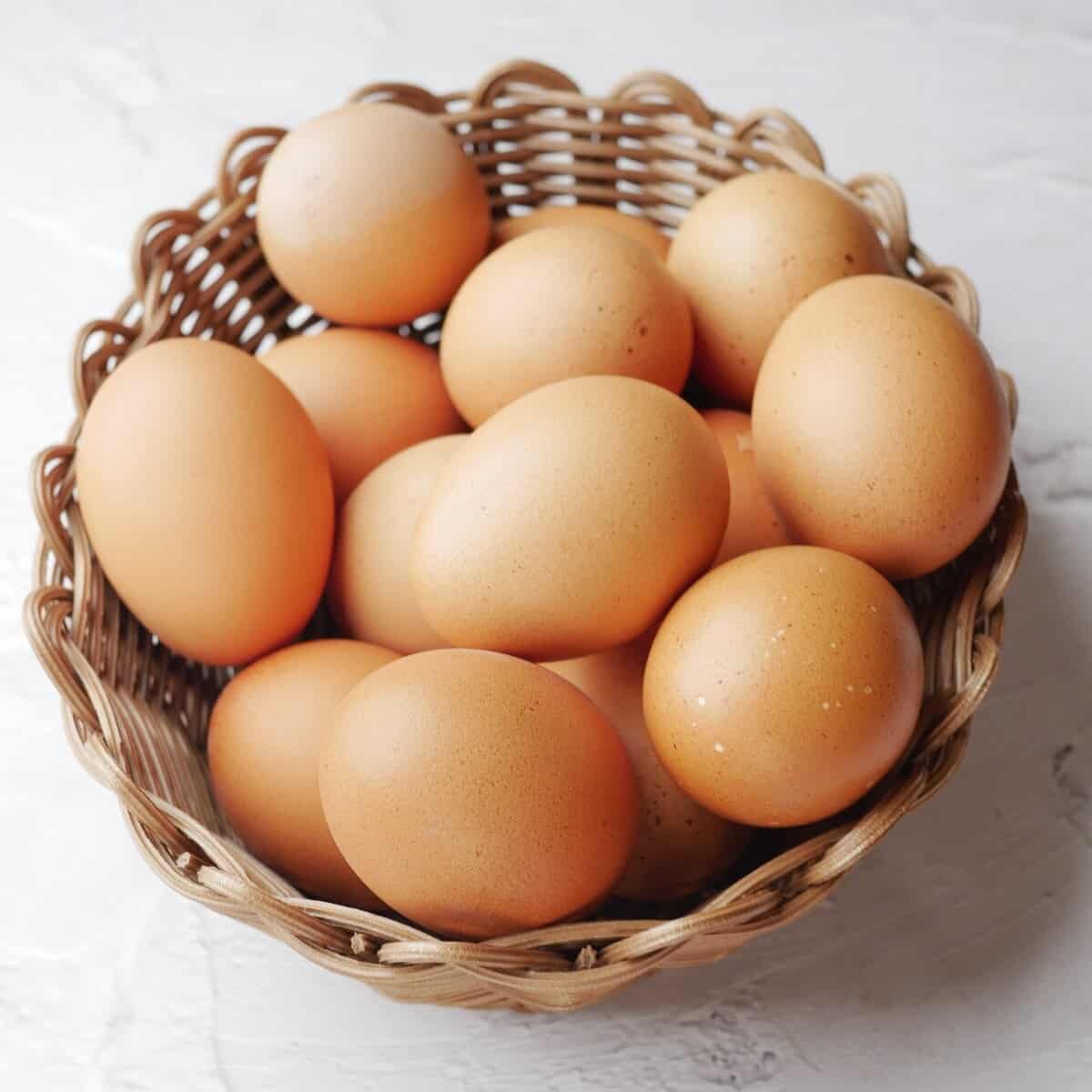
Eggs are almost always an ingredient in baking recipes. You may not even realize how different your favorite baked goods will be without eggs.
But that's before we realize we can replace eggs with several alternatives. Today, eggless baking is not as tricky as it used to be.
Just use the best egg substitute for baking, and you may not even notice the difference.
Jump to:
Eggs and Baking
To properly find an egg replacement, we must determine its role in baking. Aside from flavor, nutrition, moisture, and color, eggs contribute to our recipes in three major ways—binding, thickening, and leavening.
For Binding
Doughs and batters need to stay together during the baking process. Otherwise, you'll end up with a crumbly baked good.
That's the first major role of eggs. They retain the structure of our baked goods by acting like glue and preventing the other ingredients from falling apart.
For Thickening
Egg whites add volume to sauces, doughs, and batters, while egg yolks contain protein that thickens them when you apply heat.
Because of their binding ability, eggs are also perfect for achieving a thicker consistency for your recipe.
For Leavening
The last major role of eggs is to help your baked goods rise. During baking, the heat causes them to produce air pockets and gas.
This reaction emulsifies the dough or batter, providing airiness, volume, lightness, and fluff to your baked goods.
Non-Dairy Egg Substitutes for Baking
If you have an egg allergy or just found out you ran out of it, it might be the right time to substitute eggs in baking. To start our list, here are some of the best non-dairy alternatives you can try.
1. Flax Egg
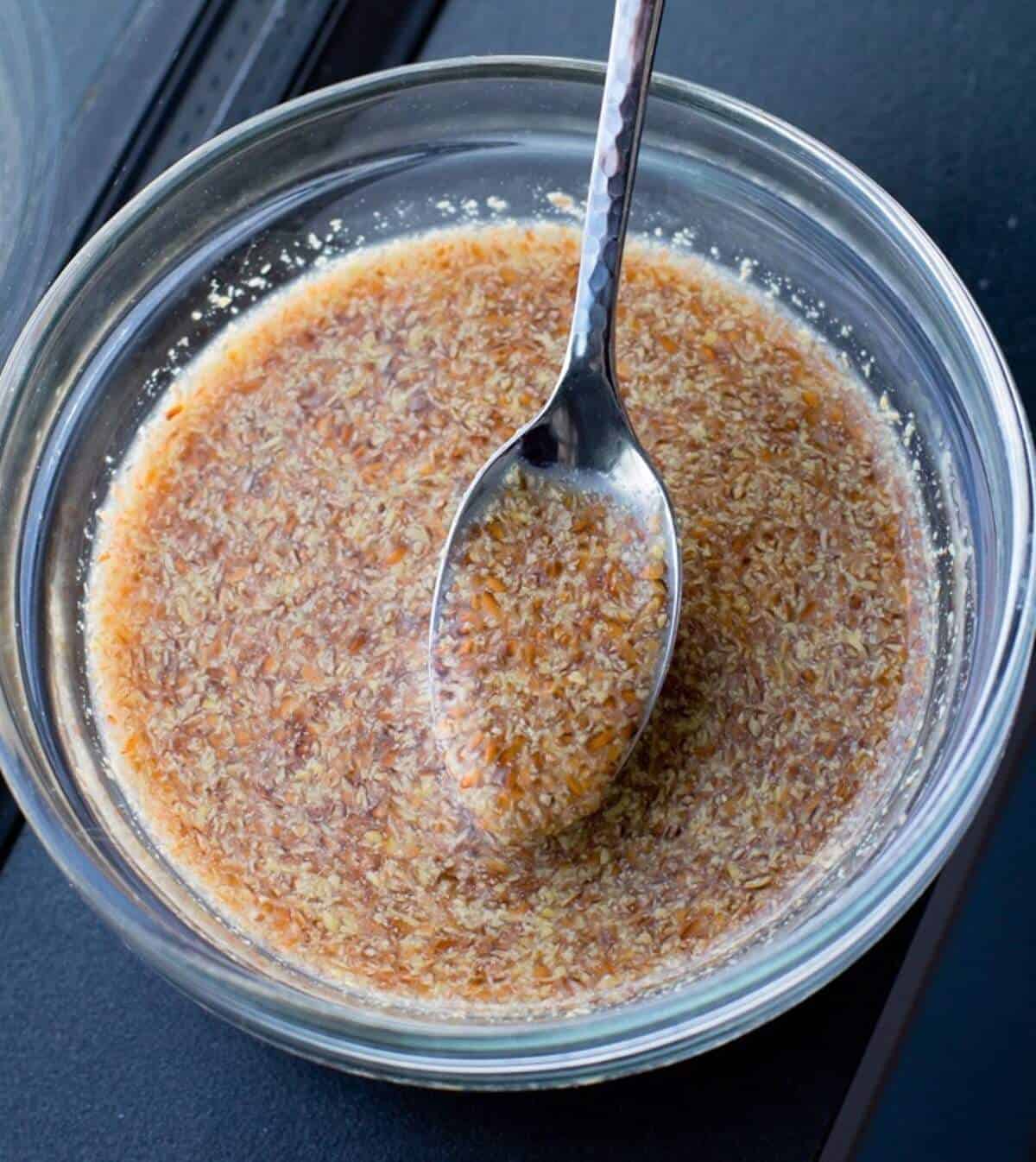
Flax egg (or flax meal) comes from ground flaxseed, and it's the most popular egg substitute not just in baking but in almost all egg recipes.
One thing I love about this substitute is it's vegan and healthy. It adds a nutty flavor to your recipe, so make sure you use it on recipes where this flavor won't be out of place.
However, flax eggs are only for binding. They don't have any leavening properties, so only use them on denser baked goods. Alternatively, explore a suitable flaxseed substitute if desired.
Replace 1 egg with 1 tablespoon of flaxseed meal and 3 tablespoons of water.
Best for pancakes, cookies, brownies, and muffins.
Try it on this Banana Walnut Muffins recipe.
2. Commercial Egg Replacer
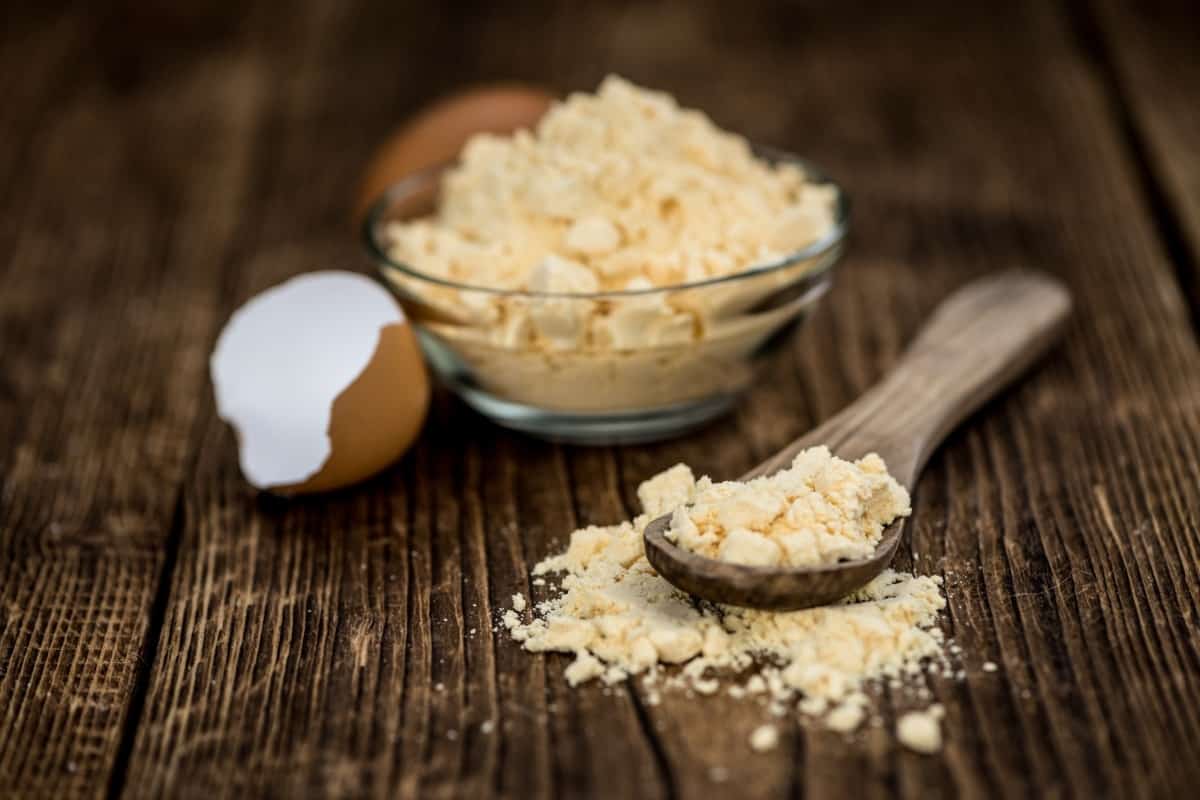
A commercial egg replacer is arguably the most accurate egg substitute in baking. It contains all the binding, thickening, and leavening properties of a real egg.
Most of them come from potato or tapioca starch combined with leavening agents, so while they will make your recipe a little denser, they will still be efficient enough to lift your baked goods.
Another thing I love about commercial egg replacers is that they don't alter your recipe's flavor. They're also widely available in supermarkets nationwide or online.
The instructions on how to use them depend on the brand or manufacturer, but you usually need to mix 1 ½ teaspoons of a commercial egg replacer with 3 tablespoons of water to replace one egg.
Best for just about anything.
Related: What Should I Use as an Egg Substitute for Cake Mix Recipes? Here Are 8 Great Options!
3. Chia Seeds
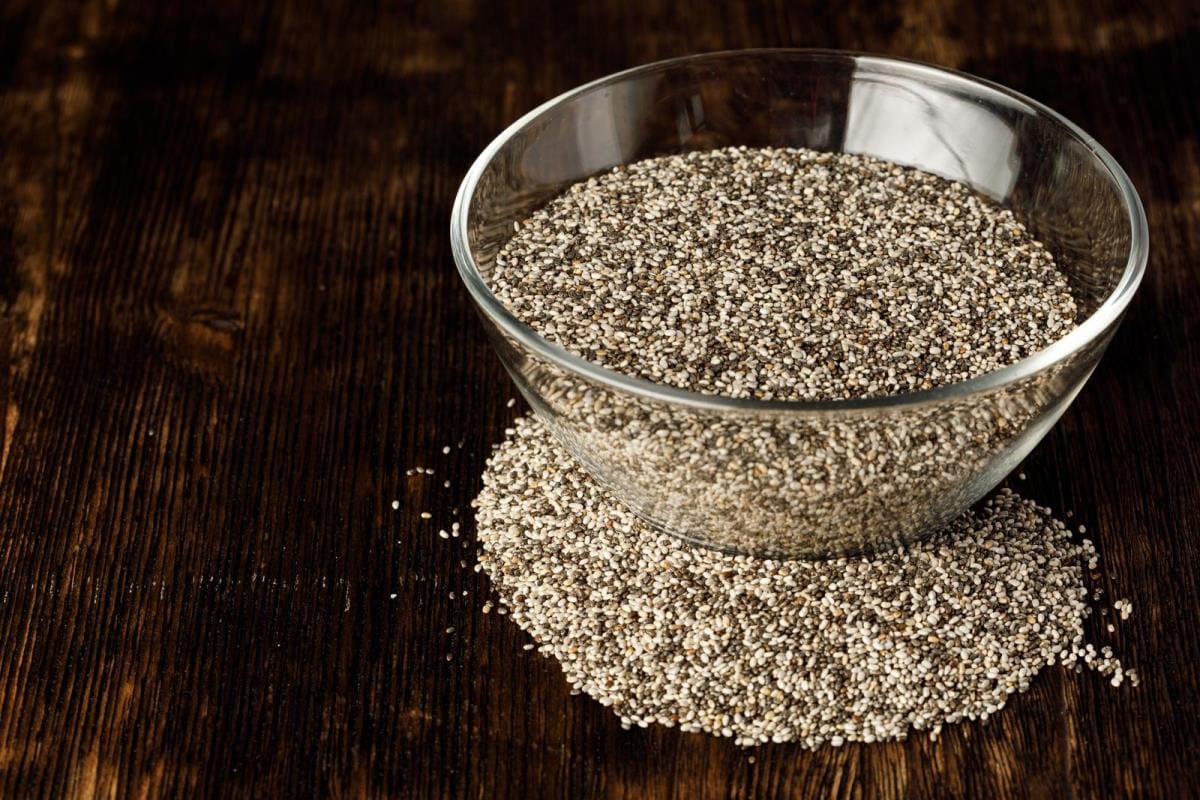
Chia seeds are very similar to flax meal since they also come from seeds mixed with water. It's a popular baking substitute for eggs if you only need a binding agent.
Just like flax eggs, they don't add volume to your recipe. Mix 1 tablespoon of chia seeds with 3 tablespoons of water and wait for it to have an egg-like consistency. This is equivalent to 1 large egg.
Best for pancakes, cookies, brownies, and muffins.
Here's a White Chocolate Chip Cookies with Macadamia recipe to try it on.
4. Silken Tofu
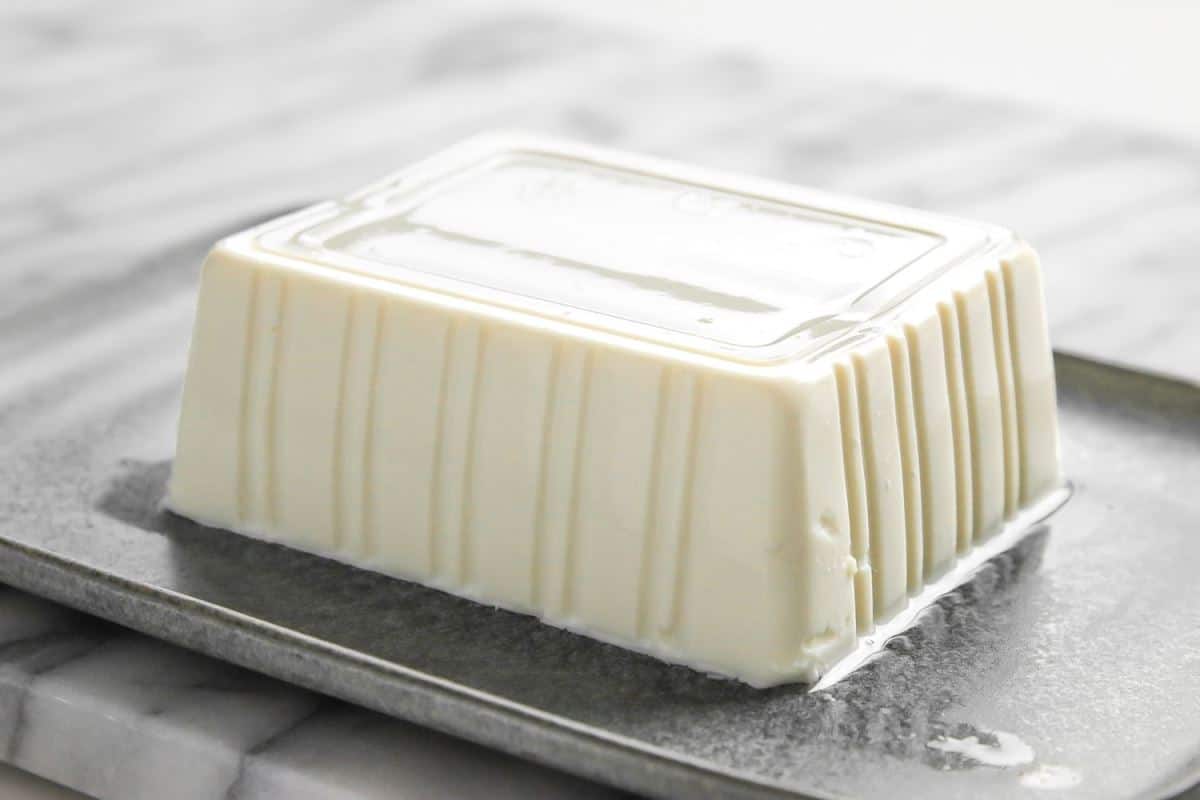
Silken tofu is solidified soy milk, so if you like milk from soybeans, you'll love this egg substitute.
There are several types of tofu, and silken tofu has the highest water content among them. Squishing it will cause it to have an egg-like consistency which is perfect for binding ingredients together.
Use ¼ cup of silken tofu to replace 1 egg in the recipe. Ensure you only use it on denser and heavier baked goods because it won't help your goods rise.
Best for cookies, brownies, and quick bread.
5. Aquafaba
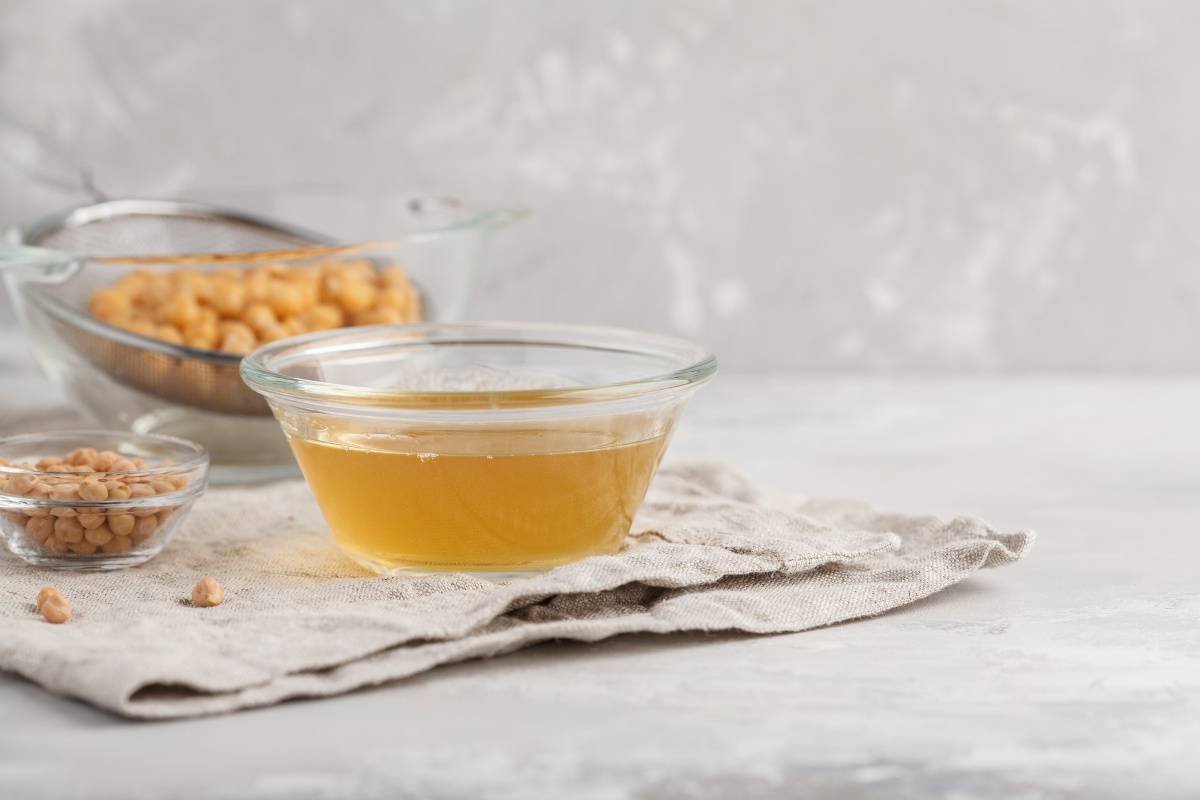
The next time you buy canned chickpeas, don't just dispose of the liquid down the drain. Transfer it to a container and use it to substitute egg in baking.
Unlike the previous alternatives, aquafaba functions as a binding and a leavening agent. Each egg in the recipe is equivalent to 3 tablespoons of aquafaba.
Best for mousse, meringue, custard, and soufflés.
Test its leavening properties on this Easy Chocolate Soufflé recipe.
6. Arrowroot Powder
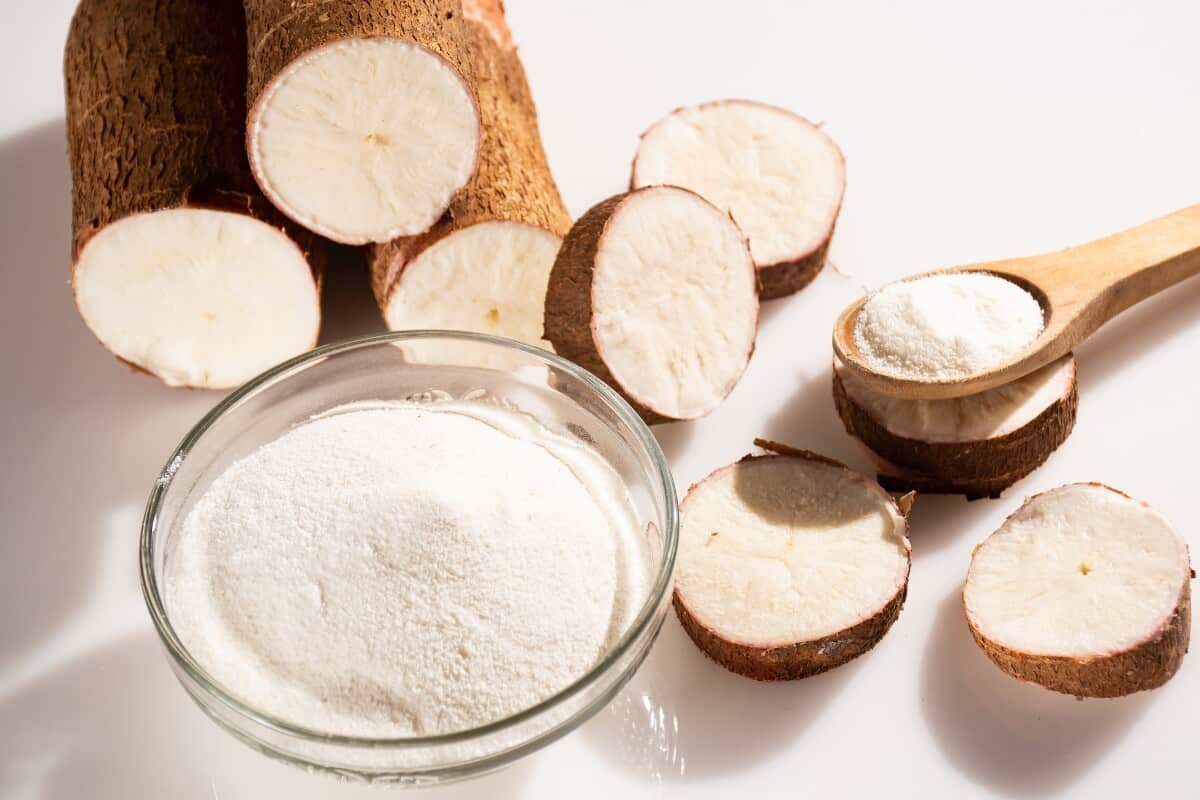
Arrowroot powder is the answer if you're looking for an egg substitute in baking that provides binding and moisturizing properties.
However, despite its versatility, arrowroot powder is a type of starch, which means your baked goods will turn out a bit denser than usual.
Mix 2 tablespoons of arrowroot powder with 3 tablespoons of water to replace 1 egg in the recipe. You can use this as an egg substitute for brownies.
Best for muffins, cakes, cookies, pastries, and brownies.
7. Nut Butter
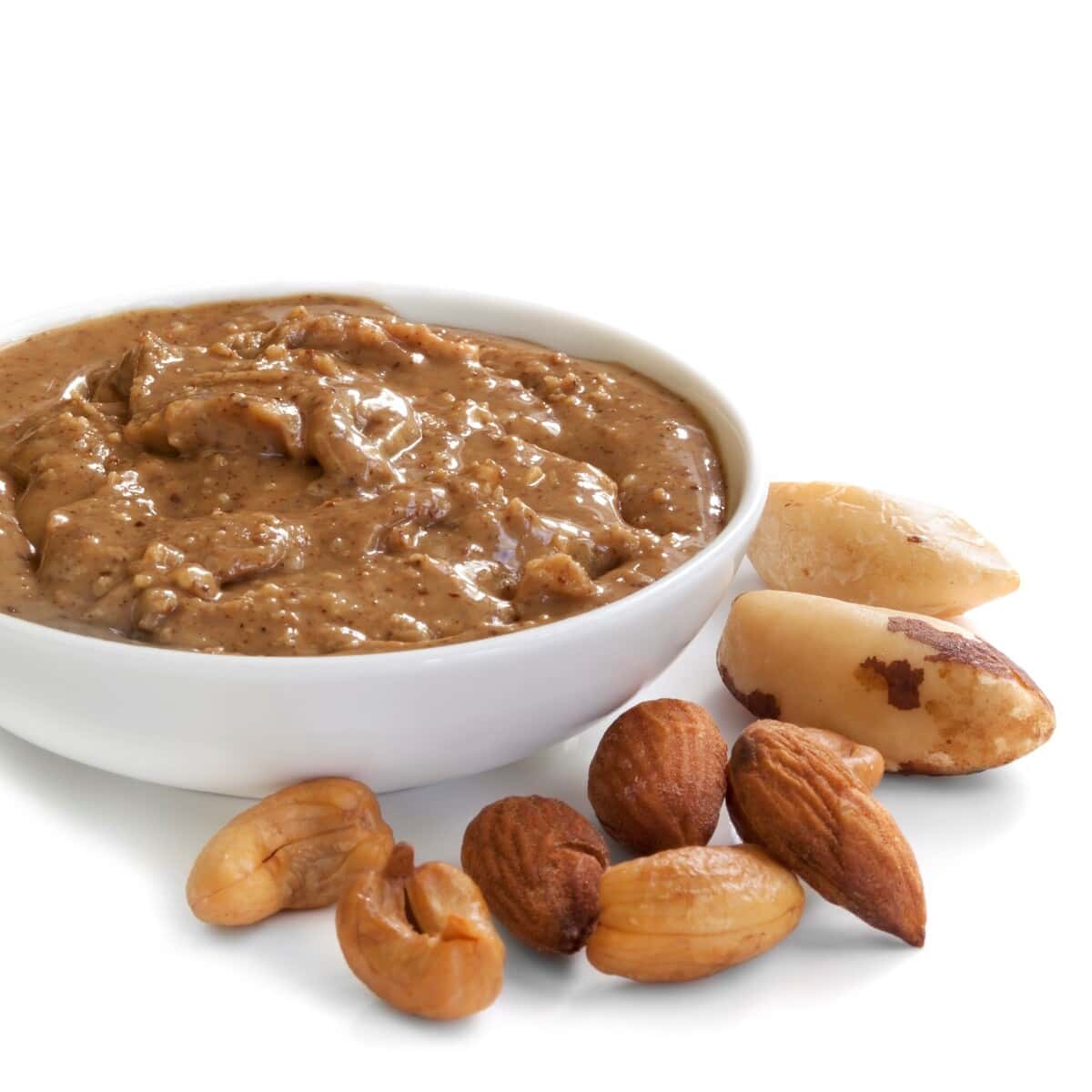
Creamy nut butters are perfect egg substitutes in baking if you need a moisturizing and a binding agent. They will make your baked goods denser but add a nice touch of nutty undertones.
However, nut butter can't function as a leavening agent, so don't use it on light, airy, and soft recipes. Replace eggs in the recipe with nut butter in a 1:3 ratio. (1 egg = 3 tablespoons of nut butter)
Best for brownies, quick breads, and cookies.
Check out this Peanut Butter Brownies recipe.
8. Carbonated Water

One of the most important parts of leavening agents is the ability to create air bubbles that lift the dough or batter up upon baking.
That's why something as simple as carbonated water may also work well with some baking recipes. However, it's only useful for baked goods that don't require too much air and volume.
Additionally, carbonated water will not bind the ingredients and keep the batter's structure. Use ¼ cup of carbonated water to replace 1 large egg in the recipe. You may also add ½ tablespoon of baking powder for efficiency.
Best for quick bread, muffins, and cakes.
9. Xanthan Gum
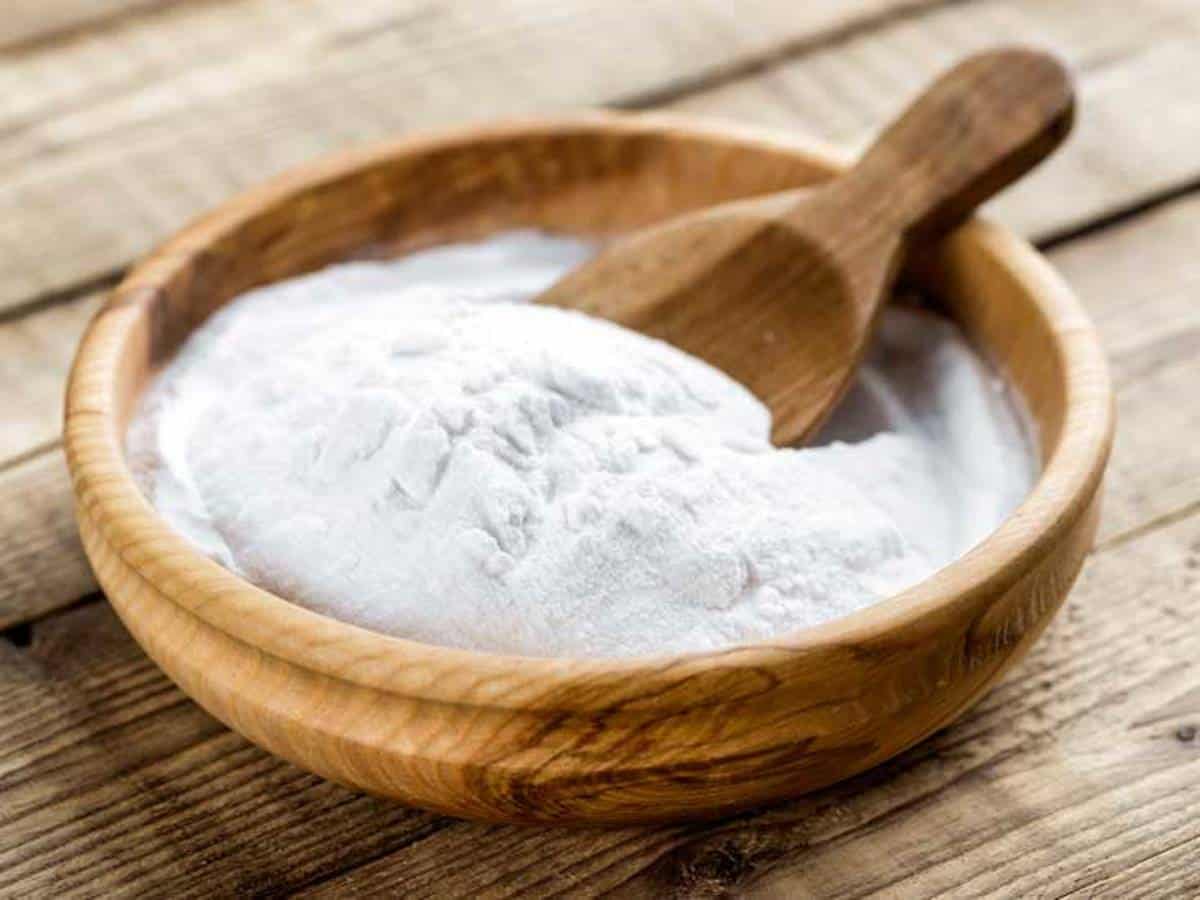
Xanthan gum is a popular binder and thickener in a lot of recipes. It comes from fermented sugar, which means it's plant-based and gluten-free.
This vegan egg substitute will hold your ingredients together but does not have leavening properties. Ergo, don't use it on airy and light snacks or desserts.
Mix ¼ teaspoon of xanthan gum with ¼ cup of water to replace 1 egg in the recipe.
If you don't have xanthan gum, you can find suitable xanthan gum substitutes on this page for similar binding and thickening effects
Best for bars, muffins, quick breads, cookies, and cakes.
Here's an Easy Cheesecake Bars recipe to try it on.
10. Baking Powder, Water, and Oil
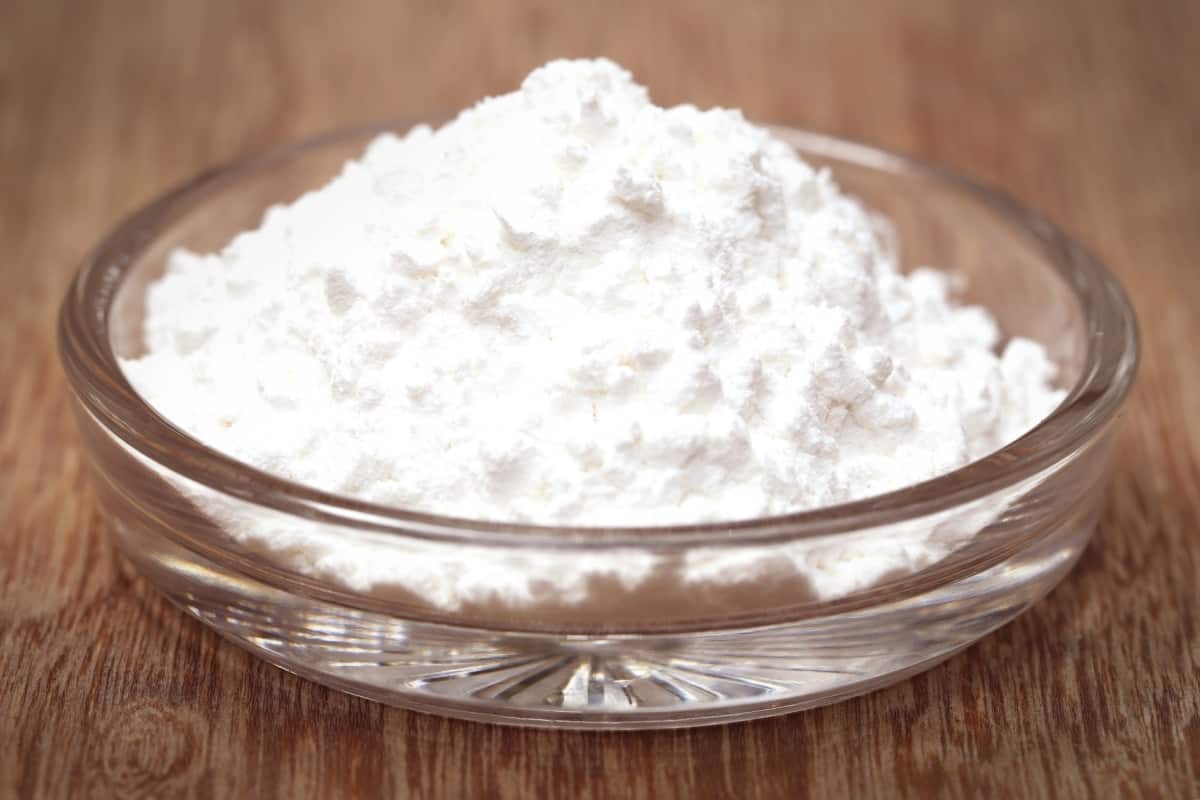
Baking powder is also a staple ingredient in countless recipes, and you can also use it as a substitute egg in baking.
First, mix 2 teaspoons of baking powder with 1 teaspoon of oil (preferably vegetable oil) and 2 tablespoons of water. This mixture is equivalent to 1 large egg.
However, baking powder, water, and oil will only lift your baked goods. They won't bind the ingredients together.
Best for muffins, quick breads, and cookies.
11. Vinegar and Baking Soda
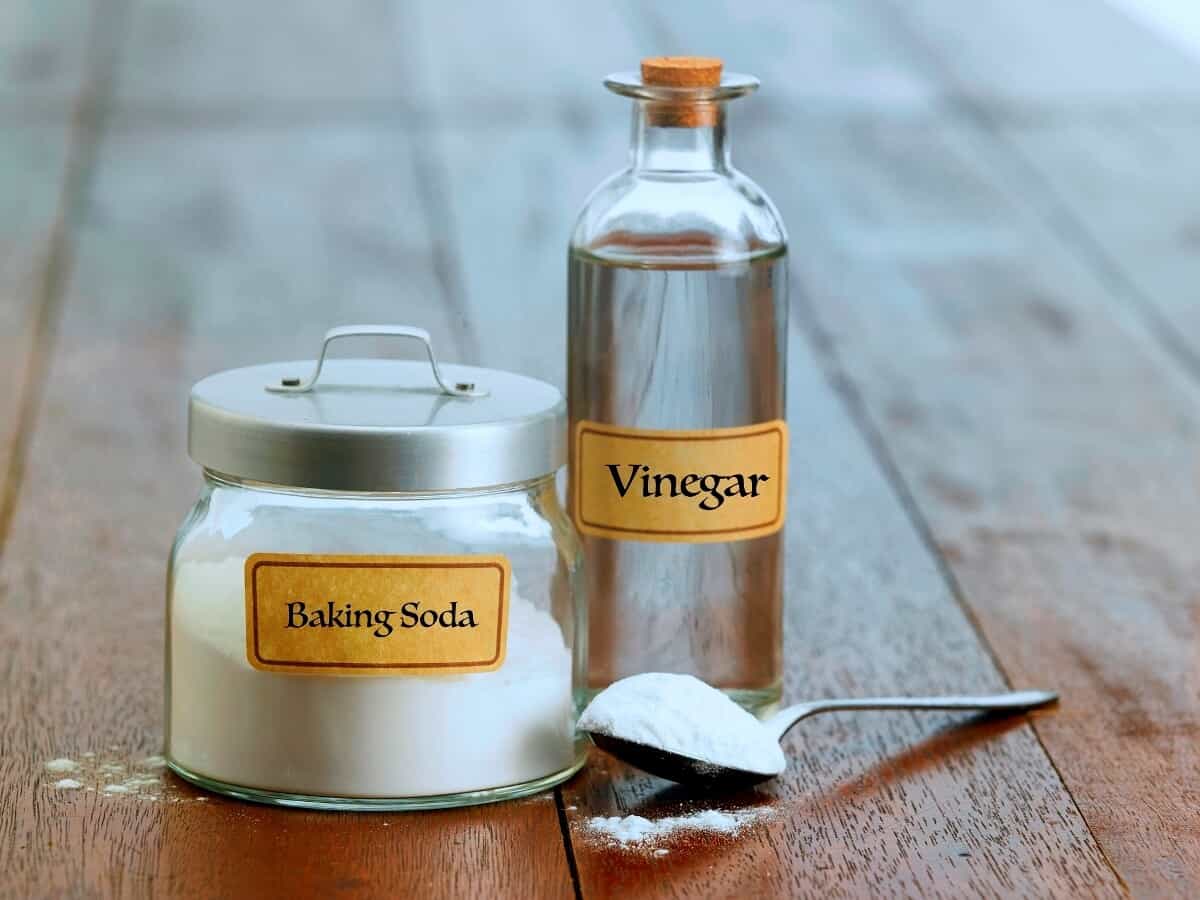
Baking powder works by triggering a chemical reaction between the sodium bicarbonate and its acidic ingredient. Sodium bicarbonate is baking soda, so an acidic ingredient should trigger a similar response.
While vinegar and baking soda will not bind the ingredients, they're perfect for leavening. Combine 1 teaspoon of baking soda and 1 tablespoon of vinegar to replace 1 large egg in the recipe.
Pro-Tip: Use white vinegar since it has the most neutral taste among all the other kinds of vinegar. Alternatively, you can also use lemon juice to trigger a chemical reaction with the baking soda.
Best for cakes, muffins, and quick breads.
Try the lemon juice + baking soda substitute on this Lemon Blueberry Cake recipe.
Dairy Egg Substitutes for Baking
If you're not lactose-intolerant and don't mind adding dairy products to your recipes (especially because of their richness), here are some perfect dairy egg substitutes in baking.
1. Condensed Milk
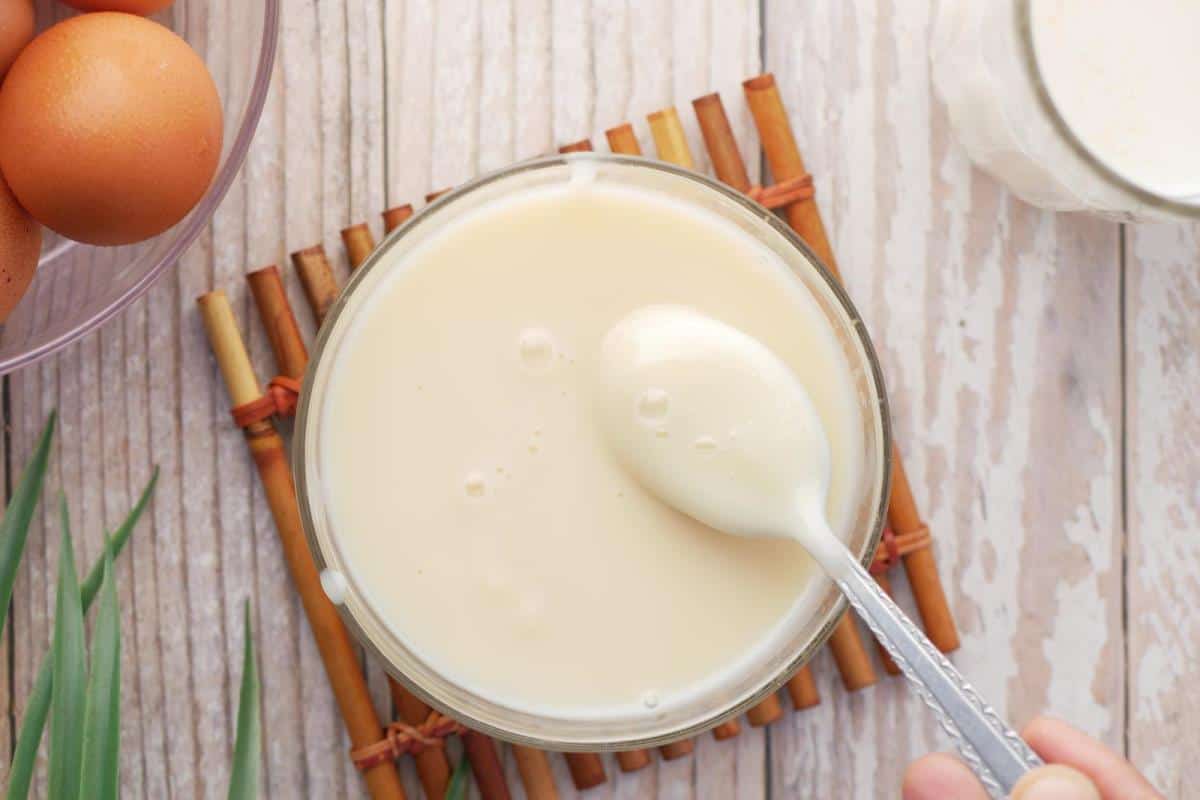
If you want to make a sweet baked good, condensed milk should work as an egg substitute for cookies and other baked items. But keep in mind that this alternative is not for every recipe.
It's only for binding ingredients together and stabilizing their structure upon baking. Also, remember that condensed milk is very sweet, so you may want to reduce the portions of other sugars in the recipe.
Otherwise, you'll have an overwhelmingly sweet baked good unless you use unsweetened condensed milk.
Around 4 tablespoons or ¼ cup of condensed milk should be enough to replace 1 egg in the recipe.
Best for cookies, cakes, and brownies.
2. Plain Yogurt
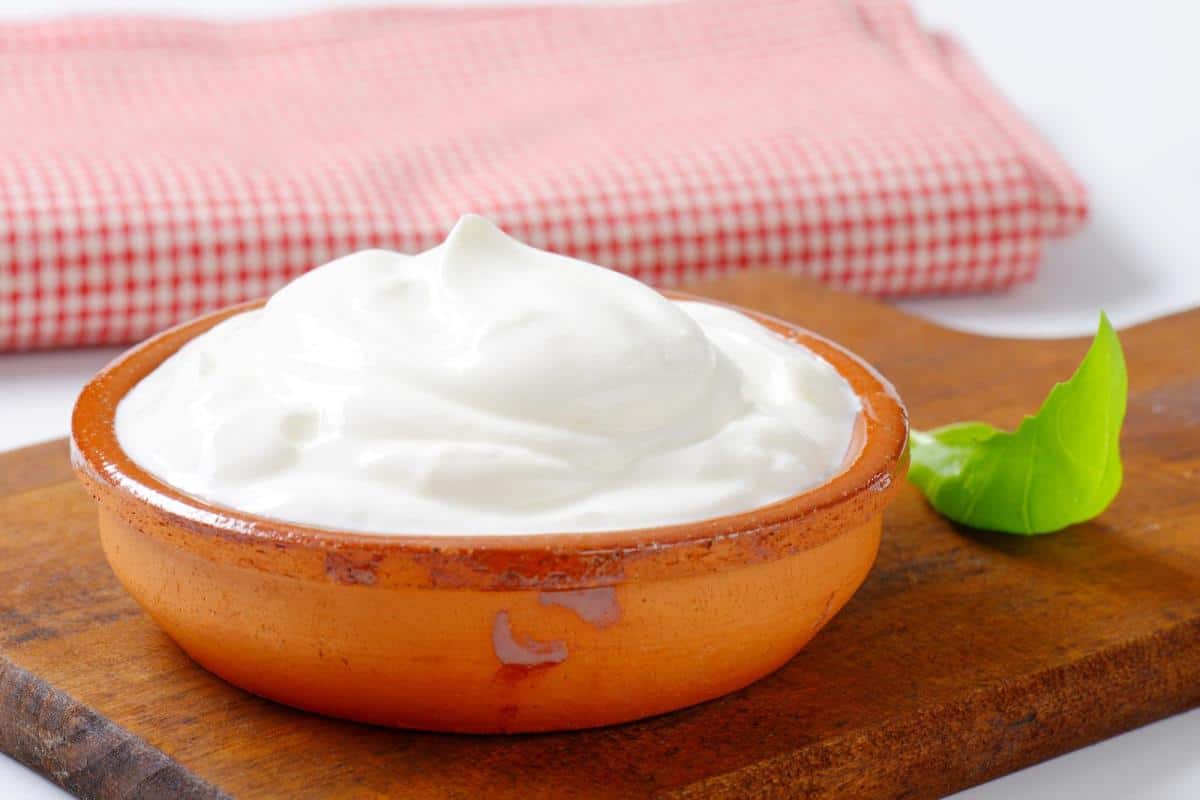
Plain yogurt is a common egg substitute because of its binding capabilities and the extra moisture it adds to your recipe.
However, it will not help your dough rise, so keep that in mind when using this alternative. Additionally, make sure you use plain or Greek yogurt for a neutral taste.
You can substitute eggs in baking by using ¼ cup of plain yogurt for every egg in the recipe.
Best for cakes, biscuits, breads, and muffins.
I've tried this alternative on Buttermilk Blueberry Muffins.
3. Buttermilk
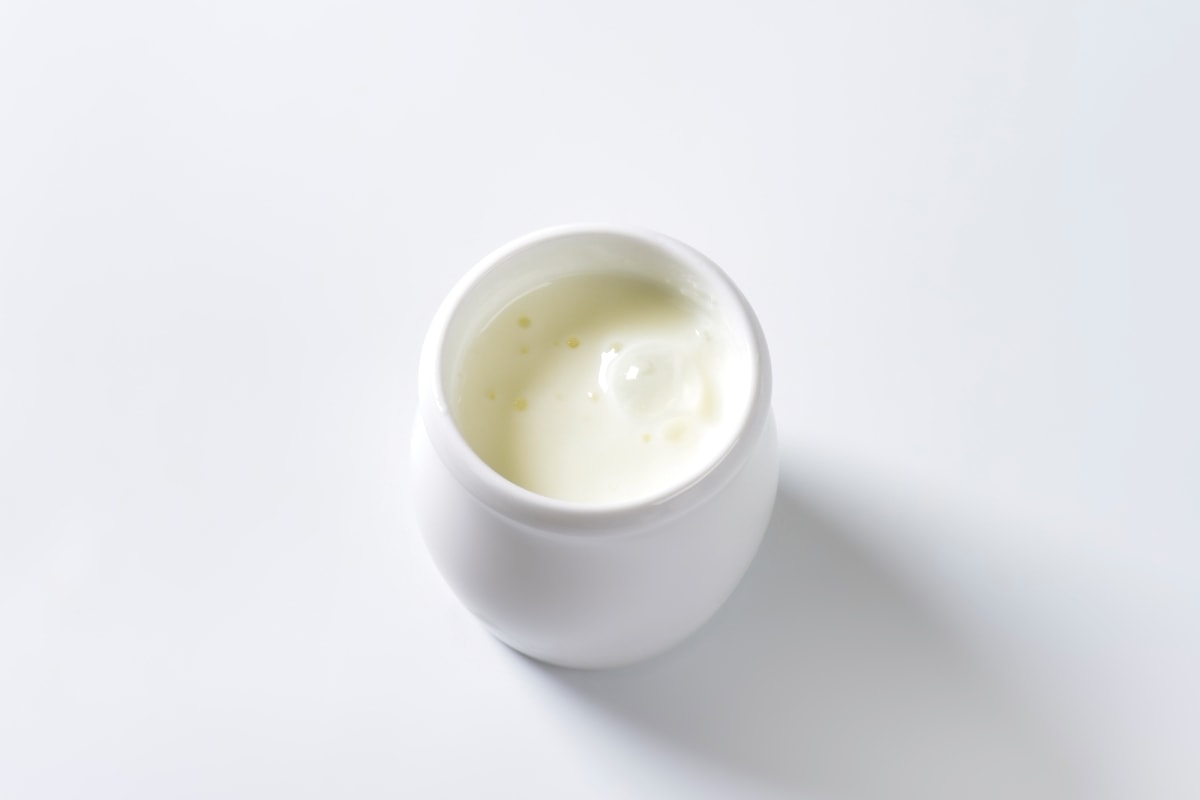
Buttermilk is almost like plain yogurt in terms of taste and origin, but its consistency is thinner than the latter. It also comes from fermented milk and is perfect for binding ingredients together.
While buttermilk has some leavening properties, it's not enough for fluffy baked goods, so only use it as an egg substitute in flat recipes.
Use ¼ cup of buttermilk to replace each egg in the recipe.
Best for cookies, brownies, muffins, and cakes.
Fruit-Based Egg Substitutes for Baking
Our last set of egg substitutes in baking is perhaps the healthiest. Let me show you some fruit-based alternatives for delicious baked goods!
1. Mashed Banana
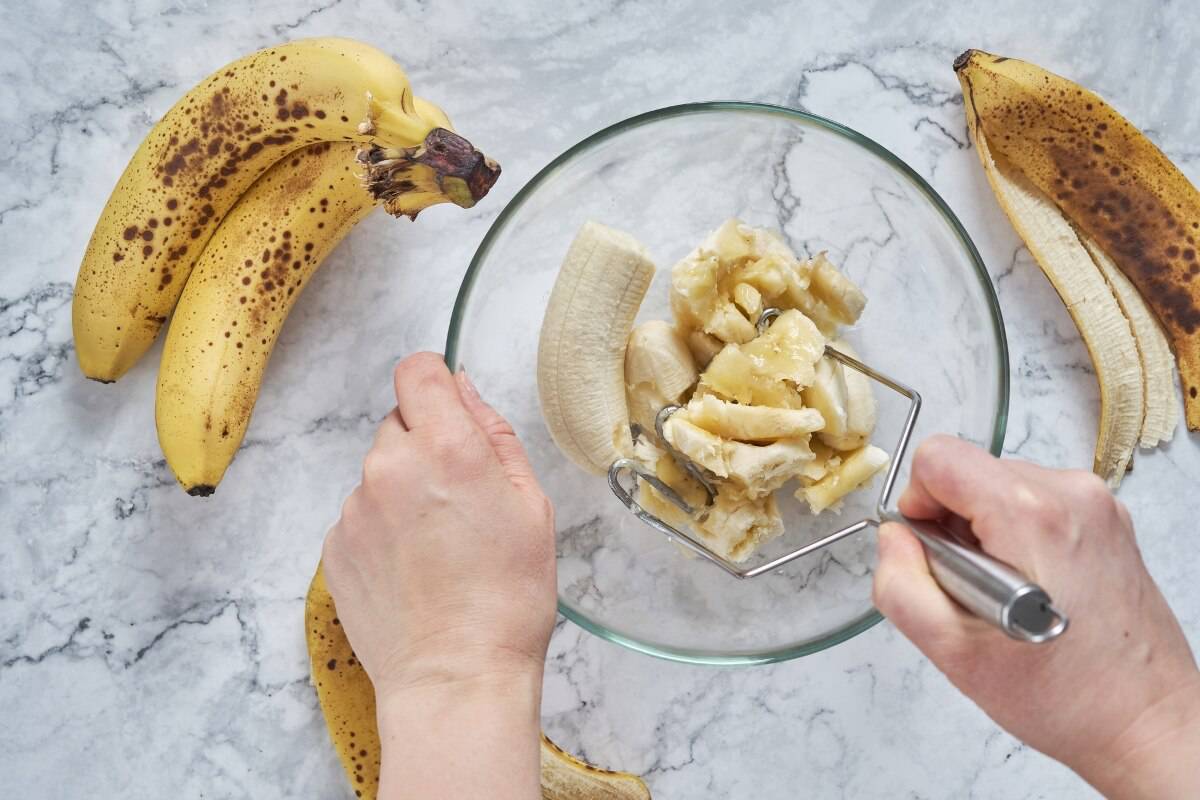
Bananas are also perfect for binding ingredients together. Plus, they add a distinct, sweet, rich flavor to your recipe! I mean, these Banana Chocolate Chip Pancakes are a proof of that.
However, bananas contain a lot of sugar, so you may want to be mindful of the additional sweetness they bring to your recipe.
Make sure you reduce the proportions of other sweet ingredients to compensate. Additionally, bananas will not provide the leavening effect that eggs do.
Nonetheless, it's perfect if you want your recipe to have that sweet and rich banana flavor. You can use it as a baking substitute for eggs in a 1:1 ratio. (1 mashed banana = 1 large egg)
Best for waffles, pancakes, bread, cakes, and muffins.
2. Unsweetened Applesauce
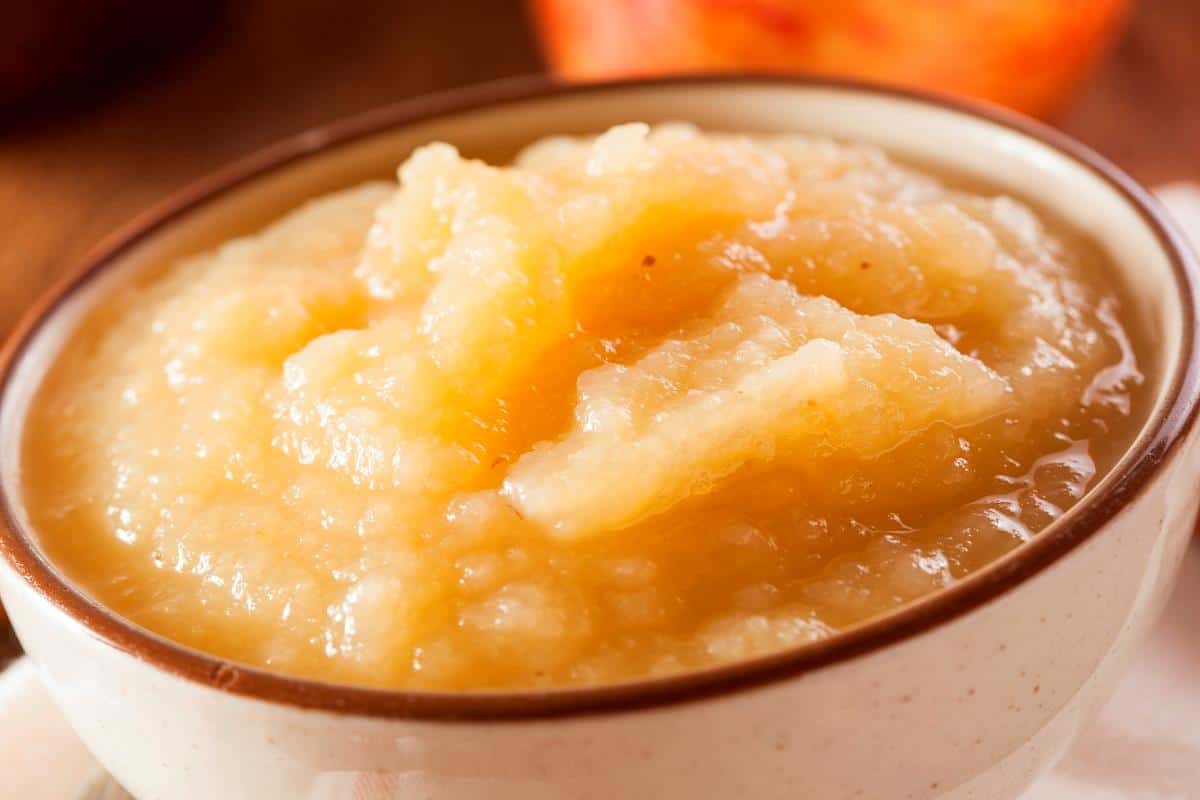
As the adage goes, "An apple a day keeps the doctor away." Well, you can also keep the eggs away because you can use applesauce to substitute eggs in baking.
I love this alternative because its binding power is very similar to that of eggs, and its nutritional content is significantly higher than many other substitutes.
It has no leavening properties, but it's perfect for dense baked goods that need a lot of moisture. Just be sure to get the smooth and unsweetened applesauce so it doesn't alter the recipe's flavor profile.
Use ¼ cup of unsweetened applesauce to replace one large egg in the recipe. You can also add ½ of baking powder if you need a leavening agent. Alternatively, explore a suitable applesauce substitute in baking if desired.
Best for muffins, quick breads, and pancakes.
Related: What Is the Best Substitute for Apple Butter?
3. Pumpkin Puree
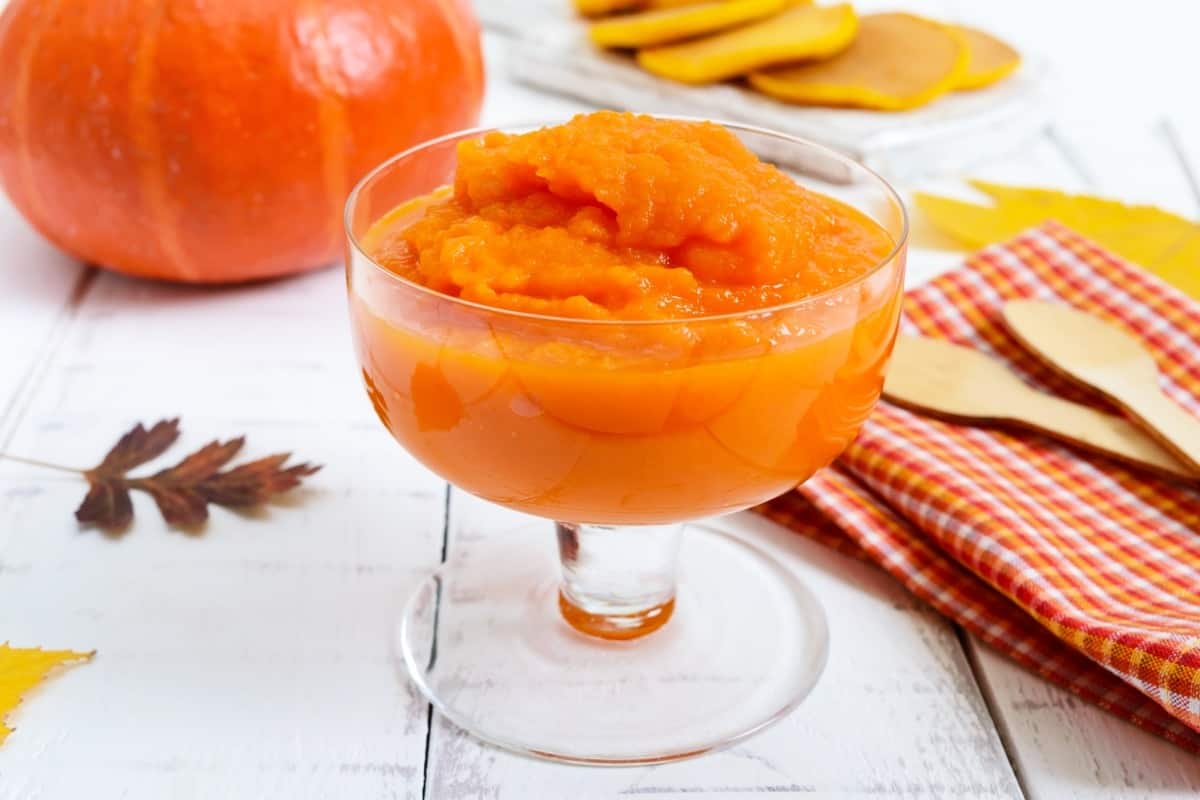
If you have pumpkins at home, you can make pumpkin purée with them and replace eggs in your recipe. It's not among the most popular egg substitutes, but it's definitely among the healthiest.
Pumpkin purée will thicken your bread, doughnut, or muffin batter while adding a rich flavor to the recipe. If you don't have pumpkins, you can also use sweet potatoes.
Around ¼ cup of pumpkin or sweet potato purée equals 1 large egg. However, like the other fruit-based egg substitutes here, it will not help leaven your baked goods.
You can only use it to bind the ingredients together and retain the moisture of the batter upon baking. You can add baking powder to the mix if you need volume.
Best for pancakes, muffins, and quick bread.
Here's a Bread and Butter Pudding recipe to test it on.
Tips When Replacing Eggs in Baking
Finding an egg substitute in baking is challenging but not impossible. You just need to consider a few factors and whether or not the properties of a substitute will contribute to your recipe.
To help you out, here are some tips to follow if you want to substitute eggs in baking.
Binding vs. Thickening vs. Leavening
As you can see, eggs are very versatile ingredients. It's like several ingredients combined into one. In finding an egg replacement, you must understand its role in the recipe.
Determine whether you need its binding, thickening, or leavening properties and find an egg substitute that will provide similar effects.
Here's a quick guide to help you out.
Binding/Thickening: flaxseed meal, chia seeds, silken tofu, aquafaba, arrowroot powder, nut butter, xanthan gum, commercial egg replacer, yogurt, buttermilk, condensed milk, and fruit purees.
Leavening: aquafaba, baking powder, baking soda, carbonated water, commercial egg replacer, and buttermilk.
Additional Flavor
Some alternatives have neutral flavors, like silken tofu, commercial egg replacers, and plain yogurt. However, some substitutes will bring strong and distinct tastes to the table.
Before choosing a baking substitute for eggs, you must be mindful of the additional flavors that an alternative brings.
For instance, ground flaxseed and chia seeds tend to be nutty, while condensed milk and fruit purees will add a degree of sweetness to your recipe.
Determine whether or not these flavors work well with your other ingredients and the final flavor profile of the recipe before proceeding.
Dairy vs. Non-Dairy
This may not be an important aspect for some, but if you're serving lactose-intolerant people, you must choose between dairy and non-dairy substitutes.
If you're unsure, it's best to stick to non-dairy alternatives just to be safe. But if none of the people you're serving is lactose-intolerant, just consider the two previous factors before choosing a substitute.
Egg Substitute for Baking FAQs
It depends on which properties of egg you need for your recipe, but generally, aquafaba, baking powder, buttermilk, and commercial egg replacers are the best egg substitutes in baking.
You shouldn't use milk as a direct substitute for eggs in baking because it doesn't provide the binding and leavening effects you want from eggs.
Milk shouldn't be used as an egg substitute as it lacks all the most important functions of eggs in baking. But if you only need to add moisture to your recipe, you can use ¼ cup of milk to replace each egg.
Yes, you can bake without eggs, but not without an egg substitute. Eggs play some important roles in baking, and you need either a binding, thickening, or leavening agent to compensate for the absence of eggs.
Finding the Best Binding and Leavening Agent
There you have it. These are all the best egg substitutes I found useful when baking. As always, consult your recipe before choosing an alternative to replace your eggs.
Some substitutes will be useful in certain aspects, while others will excel for different reasons. It always depends on your needs.
If you want to replace other ingredients in your recipe, visit Also The Crumbs, Please, for more culinary hacks and tips.
You Might Also Like:
What Should I Use as an Egg Substitute for Cake Mix Recipes?
The Best Egg Wash Substitute List You’ll Find Today
What Is the Best Egg Substitute for Cornbread?
Best Rice Flour Substitutes for Gluten Free Baking and Cooking
Recipe
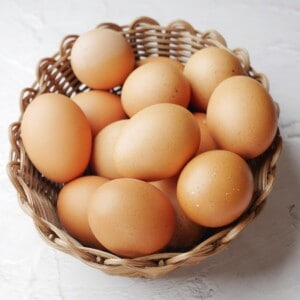
Egg Substitute for Baking
Ingredients
Option 1 (Flaxseed Meal)
- 1 tablespoon ground flaxseeds
- 3 tablespoon water
Option 2 (Commercial Egg Replacer)
- 1½ teaspoon commercial egg replacer
- 3 tablespoon water
Option 3 (Mashed Banana)
- 1 ripe banana
Instructions
Option 1 (Flaxseed Meal)
- Mix 1 tablespoon of ground flaxseed with 3 tablespoons of water.
- Let the mixture sit for 10 minutes or until it assumes a gel- or egg-like consistency.
- Use 1 tablespoon of the flaxseed meal to replace 1 egg in the recipe. (Increase the proportions based on how many eggs you want to replace in the recipe.
Option 2 (Commercial Egg Replacer)
- Combine 1 ½ teaspoons of commercial egg replacer and 3 tablespoons of water in a small bowl.
- Mix until it's almost as thick as egg whites.
- Use as a substitute egg in baking in a 1:1 ratio. (Increase the proportions based on how many eggs you want to replace in the recipe)
Option 3 (Mashed Banana)
- Peel the banana and place it in a small bowl before mushing it.
- Continue mixing and mushing until no chunks are visible.
- Use the mashed banana as an egg substitute in a 1:1 ratio. (Increase the proportions based on how many eggs you want to replace in the recipe)
Notes
You can find the video in the post above. If you don't see a video, please check your browser settings.


Leave a Reply